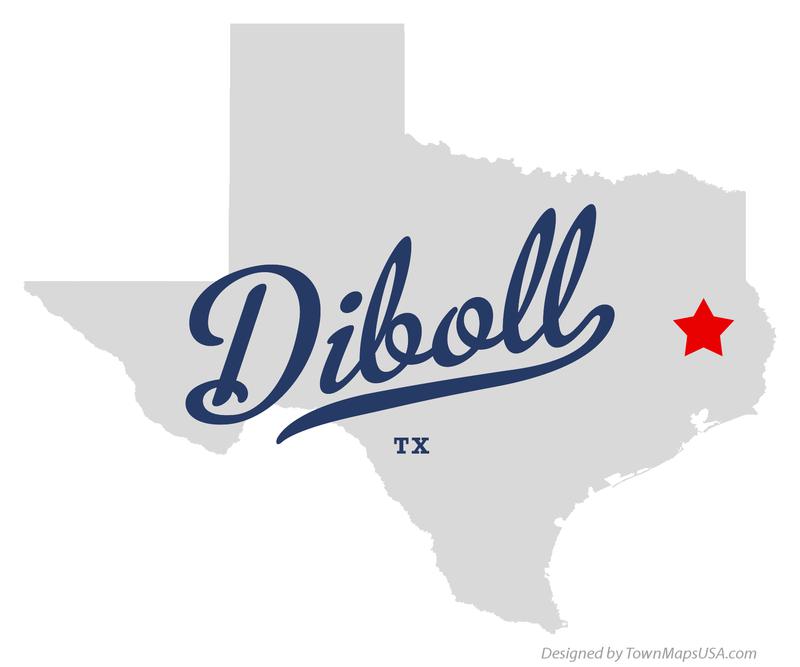Choosing a REALTOR®
 Buying a home is one of the largest purchases and biggest decisions of your life. The first thing to do is to find a REALTOR® you trust. Ask your friends and relatives who have bought homes recently for their recommendations. Or, you can use the find-a-REALTOR® search to locate a REALTOR® in your area.
Buying a home is one of the largest purchases and biggest decisions of your life. The first thing to do is to find a REALTOR® you trust. Ask your friends and relatives who have bought homes recently for their recommendations. Or, you can use the find-a-REALTOR® search to locate a REALTOR® in your area.
Before working with a REALTOR®, you should know that the duties of the REALTOR® depend on whom the REALTOR® represents.Many REALTORS® specialize as buyer’s agents, representing clients who are searching for their next home. These agents can save you time and money by researching properties based on your criteria, helping you secure the best mortgage rates, counseling you on the offer amount and terms most favorable to you, and negotiating on your behalf. For buyers, there’s really no downside to hiring a REALTOR® because the seller generally pays buyer’s-agent commissions. Many buyer’s agents have earned the Accredited Buyer Representative (ABR®) designation from the National Association of REALTORS® Real Estate BUYER’S AGENT Council.
If you choose not to use a buyer’s agent, you could negotiate directly with the listing agent representing the owner. All brokers must treat you honestly and fairly regardless of whom they represent. If you choose to have a REALTOR® represent you, you should enter into a written contract that clearly establishes the obligation of both parties and specifies how your REALTOR® will be compensated
Deciding What you Need and Want
Needs and wants list
Before you start looking, make a list of what you want and need. Once your list is made, go back over it and decide what is most important–which items are musts and which you are willing to give up. Assign each item a priority so that you will know what to look for as you begin house hunting.
Location
Deciding where you want to live may be the single most important factor in choosing a home. Location to employment centers, shopping centers, schools, major traffic arteries, and other attractions are important and have significant influences on value.Your choice of location may be limited somewhat by the price you can afford. Even so, make sure you consider such things as:
- prices of properties and property taxes;
- distance to work, schools, shopping, and entertainment;
- proposed changes in land use such as commercial shopping centers and roads, and potential hazards such as flooding and noise from a nearby airport or highways.
Type of Home and Lot
A single-family detached home typically provides more living space and land area than other types of living units and permits you greater freedom (less restrictions) to remodel, expand, paint, and alter the appearance.If you don’t like spending leisure time on yard work, consider a condo or garden (patio) home. Condos and garden homes often offer shared greenbelts and garden areas or membership in private recreational facilities such as swimming, golf, and tennis.
New vs. older homes
Pre owned homes usually have established yards, and the neighborhood or subdivision is usually built-out. On the other hand, they may require more maintenance.New homes are not without problems. Although they require less maintenance in the first few years, you may have to put in landscaping and call the builder back to correct faults. And if buildings are still active in the area, you may have to endure nearby construction.You could already have your dream home in mind. Then again, you might not know what you like until you see it. Either way, your REALTOR® will listen to your preferences and help you find the perfect home.
What Can you Afford?
There are typically three major areas of concern when deciding what you can afford: down payment, qualifying for a loan, and closing costs.
Down payment
A conventional loan typically requires a down payment. It is not uncommon for buyers to place a down payment of 10% to 20% of the purchase price. For example, on an $80,000 home, a down payment of $8,000 to $16,000 in cash may be warranted . Government-backed loans, insured by the Federal Housing Administration (FHA) and the Veterans Administration (VA) are particularly useful to first-time buyers and often require 5% or less as a down payment. Generally, a higher down payment means better loan terms and a lower interest expense on the mortgage.
Qualifying for a loan
A lender will determine how much they think you can afford. But remember, just because the lender says you can afford one price doesn’t mean that’s what you should spend. Be wise and thoroughly examine how much you should spend on a home.Be prepared to provide the lender with a two- to five- year financial history that contains the following:
- Income–gross monthly income as well as employment history, education, and any secondary income such as bonuses, dividends, and child support. The lender may require a letter from your employer, W-2 forms, or, if you are self-employed, recent tax returns.
- Assets–current checking account balances, savings accounts, stocks and bonds, certificates of deposit, other property, insurance policies, and pension funds.
- Credit–debts on cars and appliances, debts on all credit cards, and history of debt repayment. Your lender may ask for a credit report, so you may want to clear up any known negative terms in advance.
Your REALTOR® can help you determine what price range and monthly payment you can afford. The monthly payment typically consists of principal, interest, taxes and insurance–PITI, for short.
Closing Costs and Other Costs
Purchasing a home involves a number services, and with them, fees. You should expect fees for appraisal, survey, inspections, hazard insurance, loan origination (lender’s administrative costs), credit report, document preparation, title search and insurance, recording fees, notary, attorney, and escrow. You will pay for some fees and the seller will pay for others. The costs will vary depending on each transaction. Most lenders will provide you with a good-faith estimate of such costs. Your REALTOR® can also help you estimate what those costs might be.
An item often confusing to first-time buyers is points. Points are interest collected in advance. One point equals 1% of the loan amount. For instance, three points on a $70,000 loan amount would be $2,100. By collecting points (interest) in advance, the lender increases his rate of return on the loan. So, if market interest rates are at 8.5% for a 30-year loan with no points a lender might offer you an alternative loan at 8% if you pay some points.
And don’t forget about utilities and maintenance. These costs will vary depending on the home you choose, but it’s a good idea to budget for them in advance.
The Offer
What to offer
A REALTOR® can help you find your perfect home, but only you can decide how much you are willing to offer for it. Ask your REALTOR® about the selling prices and marketing time of other houses in the area.Once you have determined the amount you are willing to spend, your REALTOR® will help you prepare a written offer. In most transactions you will offer to deposit earnest money with the escrow agent, showing your sincerity in making a reasonable offer and abiding by the terms of the written contract.
Contract forms
Your REALTOR® will help you prepare an offer using standard forms. The offer, if accepted, will become a binding contract. This document is the most important paper you will sign because it lays out all the terms of the transaction. It contains:
- a legal description of the property,
- any property that will be transferred with the home, (blinds, curtains, fireplace screens, etc.)
- the price
- financing conditions and contingencies
- amount of earnest money deposit
- name of the escrow agent and title company
- proration of insurance, taxes, and interest
- fees to be paid and who pays for which
- rights to inspect the property and for repairs to be made
- dates of closing and possession
- what happens if either party defaults on the contract
- Inspections and warranties
Before signing the contract, take precautions to protect yourself against unseen defects in the home. An inspection by a qualified inspector can provide you with unbiased opinions about the condition of the foundation, mechanical systems, plumbing systems, appliances, etc. If you can, accompany the inspector at the time the inspection is conducted. It’s also a good idea to get a termite and other wood-destroying insect inspection. You may also want to have your REALTOR® request that the seller furnish you with a one-year residential service contract as part of the deal. This is common practice with the purchase of existing homes (after the first year, you’ll have the option of renewing coverage at your expense) and ensures that certain items will be repaired by the company if they fail to function after you move in. If you buy a new home, the builder may offer a warranty as well. Whether you get a residential service contract or receive any other warranty, find out how claims will be processed and how any necessary repairs will be made.
Seller’s options
The REALTOR® working with you will present the contract to the seller’s agent or seller. The seller has three options: accept, reject or make a counteroffer–a rejection of the offer with a simultaneous offer from the seller to the buyer. If the seller makes a counteroffer, you then have the same three options. This process goes on until a suitable price is agreed upon by both parties.
Binding contract
Once you and the seller agree to the written terms and both of you sign, the document becomes a binding contract. Be sure that you pay close attention the terms. Otherwise, you may waive some contractual rights. The contract may also set out other contingencies that have to be satisfied, so read the contract carefully and comply with its requirements. If repairs are required, the contract will specify who will bear the cost of the repairs, who will arrange for the repairs, and when the repairs must be made. Before you close, be sure that the condition of the property meets the required condition specified in the contract.
Finding Financing
Once a contract becomes binding, you’ll probably have to arrange for financing. Depending on the terms of the contract, the purchase of the home may be contingent upon you finding the right financing.
Lenders
Most home buyers get loans through savings institutions and mortgage bankers and, to a lesser extent, from commercial banks, credit unions, other private sources, or even the seller. Sellers often can offer a competitive interest rate and attractive terms. Check on specifics.
Types of loans
In general, three broad categories of loans are available:
- Private vs. government loans. Most mortgage loans are made by savings institutions, banks and mortgage companies. Generally, a lender will require you to buy mortgage insurance, particularly if you make a low down payment. This insurance may be paid at closing or added to the loan amount. VA loans require no mortgage insurance, but only qualified veterans may apply for them. Mortgage insurance protects the lender, to a degree, in the event of default. On government (FHA and VA) loans, the government does not actually loan the money but rather guarantees (or insures) to repay the lender if you default for some reason. Government loans have important advantages–they generally require a lower down payment than conventional loans and often have a lower interest rate or points. On the down side, government loans limit the amount you can borrow, often take longer to process, and sometimes have higher closing costs.
- Fixed rate vs. adjustable rate. On a fixed rate mortgage, the interest rate stays the same over the life of the loan, usually 15 or 30 years. That means your payment will not change except for adjustments on taxes and insurance. Adjustable rate mortgages (ARMS) have interest rates or monthly payments that can go up or down over time. These mortgages typically start out with a lower interest rate, lower monthly payments, and lower fees and points than fixed rate mortgages and often appeal to first-time home buyers, younger couples who expect their incomes to grow in the coming years, and people who might not have much cash for down payment and closing costs. If you consider an adjustable rate mortgage, ask the lender to explain the terms fully. Ask about the interest-rate cap (the maximum rate you will be charged no matter how high rates go in the market), the index that will be used to calculate future interest rates, and how index charges will affect your mortgage.
- Assumable vs. new loan. Some loans, particularly FHA and VA loans as well as some adjustable rate mortgages, are assumable. That means a buyer can assume an existing loan usually on the same terms as the previous owner. Assuming a loan may save some costs and time. As the buyer, you would typically pay the lender a fee at closing for processing the assumption.
The true price of financing
When shopping for a loan, don’t judge the loan by the interest rate alone. Compare several items in the entire loan package, including:
- Points on a low-interest-rate loan can be double those for a loan with a higher interest rate, causing you to pay more up front.
- Total fees charged by the lender. Some lenders will absorb the cost of many services, while others do not, so ask in advance.
- Term. In general, the longer the life of the loan and the more fixed the payment, the more you can expect to pay over the life of the loan. For example, a 30-year, fixed-rate loan will cost more in interest than a 15-year, fixed-rate loan.
- Penalties. Ask what penalties will be charged if you pay off the note early. A prepayment clause could require you to pay a penalty if you pay off the loan early, such as refinancing the loan at a later time.
Loan approval process
From the lender’s viewpoint, approving the loan, based on your financial standing, is only part of the risk; the other part is the property itself. The lender may require an appraisal to verify that the home is worth the loan as well as a physical survey to discover any encroachments on the property. Repairs may be required. Insurance must be purchased. Verifications of employment, deposits, and other matters must be obtained. Loan documentation and conveyance instruments must be drawn and approved. In addition, the title company must research the title and arrange for paying off any liens, taxes, and other costs. All these conditions and others must be satisfied before a transaction can close.
Hazard insurance
As another protection, the lender may require insurance to protect against fire and storms. (Flood insurance could be required if the house is in a flood plain.) Even if not required by a lender, it’s probably a good idea for you to consider all types of insurance.
Search to find the information you need
Closing the Deal
The closing is the end of weeks or even months of research and decision making. The closing could last less than an hour but may take longer, depending on the complexity of the transaction. It often occurs at the title company’s office. The title company officer will explain each document before you sign. You may want your attorney present as well.
Two basic kinds of documents
If buying a home were strictly a cash transaction, you would simply hand over the money and receive the deed. More than likely, however, you are borrowing money for the home, which means that you are actually making two transactions–acquiring the loan and buying the home.
- As a borrower, you will sign a note promising to repay the loan and a deed of trust (also known as the mortgage) pledging the house (or other collateral) as security for the note. You will also sign numerous other papers including acknowledgments, disclosures, surveys, certificates, etc. Be sure to read each document carefully. Ask questions if you do not understand anything. There are no dumb questions. Seriously consider having your attorney present at closing.
- As a home buyer, you will present a cashier’s check (or other good funds) to the seller, sign a document that itemizes closing costs (the lender will have given you an estimate in advance), and pay your share of the closing costs. In return, you will receive a deed, transferring ownership rights to you.
The home is yours
At the end of the meeting, you will likely receive keys to the property. At that moment, the home will be yours. Occasionally, possession of the property will occur after closing. For example, the seller may have negotiated with you for a few extra days after closing, or the loan will not immediately fund, or other concerns. But, in most transactions, you will be the new owner at the end of closing.
Some other points to keep in mind:
- Buyer/seller agency. It’s important to understand who your REALTOR® represents–buyer or seller. The REALTOR® will provide you with information about representation. As a buyer you may sign a buyer representation agreement with a REALTOR®. It will discuss the scope of the REALTOR®’s representation.
- Prepaids. You should be aware that your closing costs will include prepayment of an escrow account to cover insurance and taxes.
- REALTORS® are required to make properties available without regard to race, color, religion, national origin, sex, disability, or familial status.
- Be sure to have a property inspected by licensed inspectors to determine: a) the condition of the property (structural, mechanical, electrical items, etc.); b) any environmental conditions (asbestos, lead-based paint, toxic materials, etc.); c) wood-destroying insects; and d) other matters. Brokers are not qualified to perform such inspections.
- Residential service contracts can offer repair to appliances, electrical, plumbing, heating, cooling, or other systems in the property.
- Be sure to obtain a policy of title insurance or have an abstract of title reviewed by an attorney of your choice before buying a property.
- Seek the advice of an attorney of your own choice before entering into a binding agreement.
ed 11s




 Angelina County
Angelina County Featured Community
Featured Community


 The Everything Store
The Everything Store  J.R.'s Collections
J.R.'s Collections
